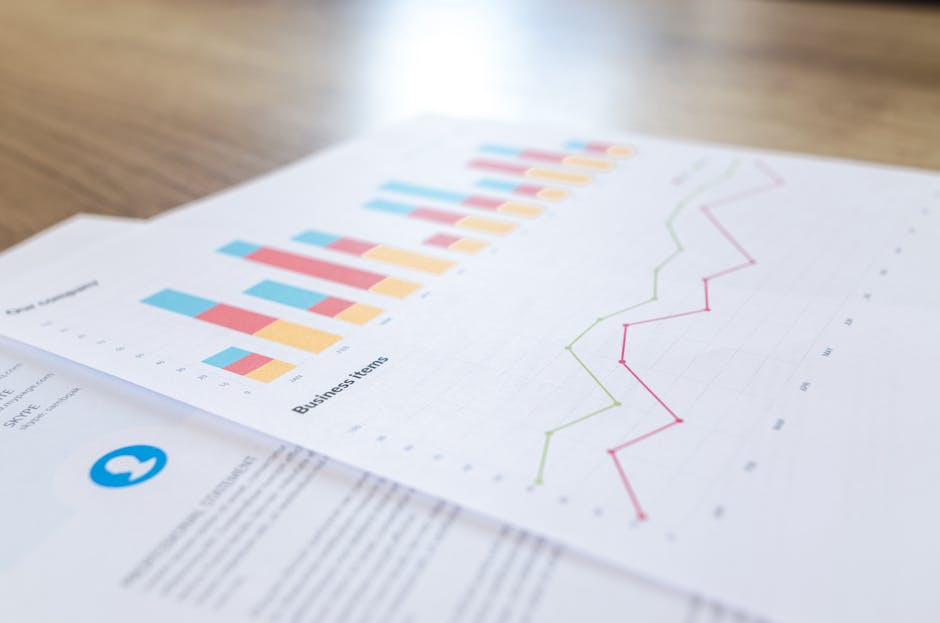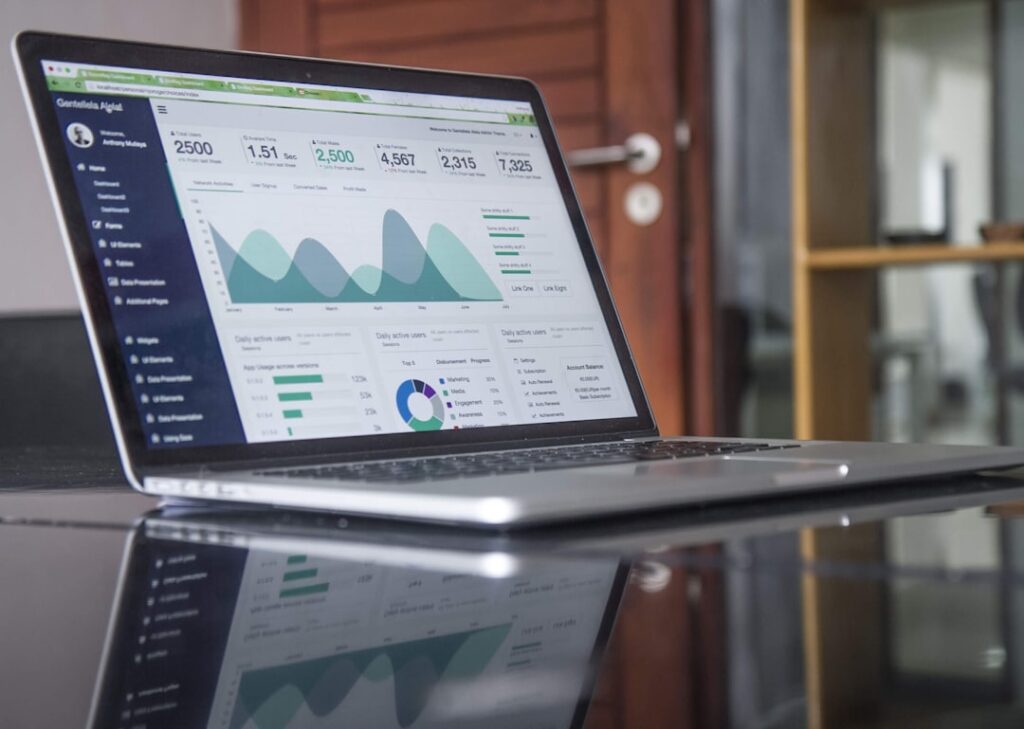Introduction
What is the best accounting software for small business? Many small business owners grapple with this question daily. Here’s a quick look at our top picks:
- QuickBooks Online: User-friendly, great for all business sizes.
- Wave: Excellent free option for basic needs.
- Xero: Robust features and great for growing businesses.
- Zoho Books: Ideal for businesses needing advanced features at lower costs.
Running a small business can be overwhelming. Financial management often takes a backseat due to lack of time or expertise, leading to costly mistakes. This is where accounting software steps in. It not only automates daily tasks but also provides critical insights, ensuring you stay on top of your finances.
I’m Russell Rosario, co-founder of Profit Leap, where we’ve developed Huxley, an AI Business Advisor Bot for small businesses. With my background as a fractional CFO, CPA, and Software Engineer, I’ve seen how the right accounting software can transform a business.
Ready to dive in? Let’s explore how you can pick the perfect accounting software and streamline your small business operations.

Understanding Your Accounting Software Needs
Choosing the right accounting software starts with understanding your unique needs. Let’s break down the key factors you need to consider:
Budget Considerations
Your budget is a crucial factor. While free accounting software options are available, they may lack some advanced features. Paid options often start at a few dollars per month and can provide more comprehensive tools.
Business Size
The scale of your business will dictate the complexity of the software you need:
- Small Businesses: Basic invoicing, expense tracking, and simple financial reports might suffice.
- Medium Businesses: You may need payroll, multi-user access, and advanced reporting.
- Large Enterprises: Comprehensive systems with extensive customization, scalability, and integration capabilities are essential.
Industry-Specific Features
Different industries have unique requirements. Your software should cater to these needs:
- Retail: Integration with your POS (Point of Sale) system is critical. Inventory management can help track stock levels and sales trends.
- Construction: Job costing features are vital for tracking expenses on each project.
- Consulting: Time tracking and billing clients accurately is a must-have.
Financial Literacy
Your team’s comfort level with accounting principles matters. If you’re not an accounting expert, opt for user-friendly software that offers robust support. Look for features like:
- Automation: Automates repetitive tasks, reducing the chance of errors.
- Help Resources: Tutorials, articles, and customer support can guide you through complex processes.
By considering these factors, you can find the best accounting software tailored to your business needs, ensuring you stay organized, compliant, and ready for growth.
Key Features to Look for in Accounting Software
When choosing accounting software, it’s crucial to know what features will best serve your business. Here are some key features to consider:
Double Entry
Double-entry accounting ensures that every financial transaction is recorded in two accounts: a debit and a credit. This method helps maintain accurate financial records by balancing your books automatically. Most accounting software supports double-entry, which can be a lifesaver for those who want to avoid manual calculations.
Mobile Access
Mobile access allows you to manage your finances on the go. Whether you’re traveling for business or just out of the office, being able to access your accounting software from your smartphone or tablet is incredibly convenient.
Time Tracking
Time tracking is essential for businesses that bill by the hour. This feature allows you to log hours worked and directly convert them into invoices. It simplifies billing and ensures you get paid for every minute of your work.
Payroll
Payroll features help you manage employee salaries, wages, bonuses, and deductions. Good payroll software will automate tax calculations and filings, making it easier to stay compliant with tax laws.
Customer/Vendor Portals
Customer and vendor portals allow your clients and suppliers to access their accounts, view invoices, and make payments. This feature enhances communication and speeds up payment processes.
Document Management
Document management features allow you to store and organize financial documents like receipts, invoices, and contracts. This can be particularly useful during tax season or audits.
CRM Integration
CRM (Customer Relationship Management) integration allows your accounting software to sync with your customer data. This integration helps streamline your sales and financial processes, providing a holistic view of your business.
Multi-Currency
Multi-currency support is crucial for businesses dealing with international clients or suppliers. This feature automatically converts transactions into your base currency, simplifying your accounting.
By focusing on these key features, you can choose accounting software that not only meets your current needs but also scales with your business as it grows.
Popular Accounting Software Features Explained
General Features
Satisfaction Guarantee: Many accounting software providers offer a satisfaction guarantee. This means if you’re not happy with the software, you can get a refund within a certain period. This reduces the risk of trying new software.
Support for Double Entry: Double entry accounting is a fundamental feature for accurate financial tracking. It ensures every transaction is recorded in two accounts, balancing your books and reducing errors.
Mobile App Availability: A mobile app lets you manage your finances on the go. Whether you’re at a client meeting or traveling, you can access your financial data anytime, anywhere.
Additional Features
CRM Integration: Integrating your accounting software with a Customer Relationship Management (CRM) system helps streamline operations. It allows for seamless data flow between sales and accounting, improving efficiency.
Multi-Currency Support: As mentioned earlier, multi-currency support is essential for international transactions. It automatically converts foreign payments into your base currency, saving time and reducing errors.
Budgeting Dashboard: A budgeting dashboard helps you monitor and control your expenses. It provides a visual overview of your budget, helping you make informed financial decisions.
Invoicing Tools: Automated invoicing tools save time by generating and sending invoices automatically. They also send reminders for overdue payments, helping maintain cash flow.
Value and Pricing
Starting Monthly Prices: The cost of accounting software varies. Some start as low as $10 per month, while more advanced options can cost significantly more. It’s essential to balance cost with the features you need.
Free Versions: Some software offers free versions with basic features. This is ideal for startups or small businesses with limited budgets. However, free versions may lack advanced functionalities.
Free Trials: Many providers offer free trials of their paid plans. This allows you to test the software before committing to a subscription. Free trials typically last 14 to 30 days.
Expert Insights and User Ratings
Expert Score: Expert reviews provide an in-depth analysis of software features, usability, and value for money. These scores help you compare different options and make an informed decision.
Customer Reviews: Customer feedback on platforms like G2 and Capterra offers real-world insights into software performance. Reviews highlight user satisfaction and reliability, helping you choose the best fit for your business.
User Satisfaction: High user satisfaction indicates that the software meets its promises and supports business needs effectively. Look for software with consistently positive reviews and high ratings.
By understanding these features and evaluating your specific needs, you can choose the best accounting software for your small business. This ensures you get the most value and efficiency from your investment.
How to Set Up Your Accounting Software
Setting up your accounting software can seem daunting, but it’s straightforward if you follow these steps.
Initial Setup
1. Sign Up and Log In: Start by signing up for your chosen accounting software. Most services offer a free trial or a demo. Once signed up, log in to your new account.
2. Enter Company Information: Fill in your business details. This usually includes your business name, address, and contact information. Some software may ask for additional details like your business structure (e.g., sole proprietorship, LLC).
3. Customize Your Dashboard: Tailor the dashboard to fit your needs. Most software allows you to add, remove, or rearrange widgets. This helps you see the most critical information at a glance.
Connecting Financial Accounts
1. Link Bank Accounts: Connecting your bank accounts is crucial for seamless transactions. Most accounting software allows you to link your accounts by entering your bank login credentials. This enables automatic import of transactions, saving you time on manual data entry.
2. Add Credit Card Accounts: Similarly, link your credit card accounts. This allows for the automatic tracking of expenses and helps in reconciling statements efficiently.
3. Verify Connections: Ensure all your accounts are correctly linked. This step is vital for accurate financial reporting and avoiding discrepancies.
Setting Up Payment Processing
1. Choose a Payment Processor: Decide whether you want to use PayPal, Stripe, or another payment processor. Your choice depends on your business needs and customer preferences.
2. Integrate the Processor: Follow the software’s instructions to integrate your chosen payment processor. This usually involves entering API keys or connecting through secure portals.
3. Test Transactions: Before going live, run a few test transactions to ensure everything works smoothly. This step helps identify and fix any issues before your customers start making payments.
Customizing Settings
1. Enable Relevant Features: Most accounting software offers a range of features like purchase orders, inventory tracking, and expense management. Enable the ones that are relevant to your business. For example, if you manage a retail store, turn on inventory tracking.
2. Set Preferences: Customize your settings to match your business processes. This might include setting default payment terms, invoice templates, and tax rates.
3. Import Existing Data: If you have existing customer, vendor, or product lists, import them. Most software supports CSV and XLS file formats for easy data import. This saves time and ensures consistency.
4. Configure User Access: Finally, set up user roles and permissions. This is important for maintaining security and ensuring that team members have access only to the information they need.
By following these steps, you can set up your accounting software to streamline your financial management and support your business growth.
Next, we’ll cover frequently asked questions to help you understand more about accounting software for small businesses.
Frequently Asked Questions about Accounting Software for Small Businesses
What Makes Accounting Software Easy to Use?
User-Friendly Interface: The best accounting software should be easy to navigate. Look for platforms with intuitive designs and clear instructions. FreshBooks, for example, is known for its simple, straightforward approach. Users often praise its clean layout and easy-to-understand features.
Automation Features: Automation can save you a lot of time. Good software will automate repetitive tasks like invoicing, tracking payments, and reconciling accounts. This means less manual work for you and fewer errors.
Integration Capabilities: Your accounting software should sync with other tools you use, like CRM systems, e-commerce platforms, and payroll services. This integration helps keep all your data in one place, making it easier to manage.
How Can Accounting Software Save Time and Money for Small Businesses?
Automated Entries: Automation isn’t just about convenience; it’s also a big time-saver. By automating entries, you reduce the manual input needed, which means fewer mistakes and more accurate records.
Financial Insights: Accounting software provides real-time insights into your finances. You can generate reports at the click of a button, helping you make informed decisions quickly. For example, QuickBooks offers advanced reporting features that give you a detailed look at your financial health.
Tax Preparation: Many accounting programs include tax preparation features. These tools help you track deductible expenses, generate tax reports, and even file your taxes. This can save you both time and money when tax season rolls around.
Is Free Accounting Software Sufficient for My Small Business?
Limitations of Free Software: Free accounting software can be a good starting point, especially for very small businesses or startups. However, these free options often come with limitations. They may lack advanced features like payroll, multi-currency support, or detailed financial reporting.
When to Upgrade: As your business grows, you might find that free software no longer meets your needs. If you need more advanced features or better customer support, it might be time to consider a paid option. According to the research, Zoho Books is a great free option, but businesses often upgrade to paid plans as they expand.
By understanding these aspects, you can choose the right accounting software that saves time, reduces errors, and grows with your business.
Next, we’ll dive into how to set up your accounting software for maximum efficiency.
Conclusion
Choosing the Right Software
Selecting the best accounting software for your small business is crucial for efficiency and growth. The right software should align with your business needs, be scalable, and offer essential features like double entry, mobile access, and CRM integration. It’s not just about meeting current needs but also about preparing for future challenges.
For instance, a small business owner who switched to an advanced accounting solution like Huxley reduced their accounting time from over 21 hours a week to just a few hours. This freed up valuable time to focus on growing their business.
Investing in Your Business’s Future
Investing in reliable accounting software is a step toward future-proofing your business. As the business landscape evolves, your software should adapt to new regulations, technologies, and market conditions. This adaptability ensures you won’t have to switch systems frequently, saving time and reducing disruptions.
Continuous learning is also vital. Stay updated on the latest trends and technologies in the finance sector. Attend webinars, read industry reports, and take courses to make the most of your accounting software. This knowledge helps you use the software more effectively and make informed financial decisions.
Profit Leap and Huxley AI
At Profit Leap, we understand the unique challenges small businesses face in managing their finances. Our solutions, like the AI business advisor Huxley, are designed to simplify accounting processes, save time, and reduce errors. Huxley provides tailored advice, precise forecasting, and actionable insights, evolving as your business grows.
Consider the case of Michael Solis from TransRide. His business was struggling with unprofitable operations due to a lack of clear forecasting. After implementing our sales forecasting and management tool, his business turned around in just a couple of months. This is the kind of impact Huxley can have on your business.
Choosing Profit Leap means gaining a partner dedicated to your sustained success. Equip your business with the right tools and knowledge, and watch new opportunities unfold. The future is data-driven, and with Profit Leap by your side, it’s brighter than ever.
Ready to take the leap? Work with us and let Profit Leap guide you to a brighter business future.



